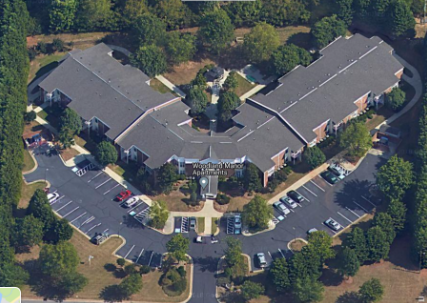Activity
Mon
Wed
Fri
Sun
Dec
Jan
Feb
Mar
Apr
May
Jun
Jul
Aug
Sep
Oct
Nov
What is this?
Less
More
Memberships
Leverage Credit For Cashflow
Private • 1.2k • Free
Astrology With Joe
Private • 4.3k • Free
Private Small Business Society
Private • 1.9k • $1/m
Legacy Builders (Free)
Private • 4.6k • Free
AIpreneurs (Free)
Private • 5.7k • Free
Apartment Investing Secrets
Public • 340 • Free
The Virtual Bookkeeping Series
Private • 22.9k • Free
Multifamily Off-Market Club
Private • 577 • Free
Mid-Term Rental Savvy
Private • 582 • Free
5 contributions to Apartment Investing Secrets
How to Find Real Estate Deals
In today’s tough market, my strategy is to buy properties well below market value. These deals are almost never on the MLS, real estate brokerage sites, or even Loopnet. Often, the best deals are found OFF-MARKET, and that's where I excel. Why Focus on OFF-MARKET Deals? No Competition: Off-market deals mean zero competition. Higher Profit: They are often more profitable than agent-listed properties. Save on Commissions: Buying directly from sellers means no agent commissions. How to Find Off-Market Deals One effective method is acquiring properties through probate sales. For example, one property we bought was part of a portfolio from sellers who didn’t care about maintaining apartment buildings in C areas. Rents and occupancy were low. My partners and I stepped in, cleaned up, put our own management in place, renovated some units, and increased the rents. One of my strengths is finding these off-market deals. Not all distressed or foreclosed property owners will sell for a huge discount, but you will often get significant savings. This is just one way to find off-market properties. While probate sales are effective, they don’t provide RECURRING deals. Want to learn more strategies? Comment below and I''ll give you the link to a video where I talked about all the strategies I use to find deals.
2
3
New comment Sep 5

Coming Back to Low-Income Housing - Why?
I started my real estate investing career with low-income housing. When I did it, low-income housing was synonymous with managing tenants in "D" & "F" neighborhoods (aka distressed and The 'Hood respectively). And although it was very profitable (to give you an idea...in my first low-income housing - a 28-unit apartment building, I needed only 4 paying tenants to breakeven!), it was a lot of work and hassle. So I decided to "graduate" to "C", then "B" neighborhoods, and eventually "A's". The time I spent managing tenants went down exponentially and that was when I was able to scale my portfolio. So I'd rather NOT do low-income housing. But times have changed. 15+ years later, through our partners, I am coming full circle and doing low-income housing again. This time though the low-income housing we're doing is not in "D" and "F" but in decent neighborhoods. There are 3 low-income properties we're buying in North Carolina and they are newer too. Do you want to know more? Let me know in the Comments.
1
2
New comment Sep 5

Find Off-Market Deals with Code Violations
One smart way to find off-market deals is by focusing on code violations. While it’s not my main strategy, a partner of mine has had great success with it. What Are Code Violations? Code violations happen when property owners neglect basic maintenance, like letting grass grow wild or ignoring broken windows. When that happens, the city or county steps in, warning the owner to fix the issue or face fines. If they don’t, the fines can stack up, and the property could even be condemned. Why Code Violations Lead to Great Deals Owners of these properties are often eager to sell, sometimes at a huge discount. While not every deal will be that extreme, you can definitely find properties well below market value. How to Find These Properties Start by getting a list of code violations from your local building or health department. Then, reach out to the owners directly through mail or phone. Want more off-market strategies? Comment “OFF-MARKET.”
2
3
New comment Sep 5

Keishia Went from 3 to 600+ doors in 24 months! How?!
I’m incredibly proud of Keishia Kennedy. When we first connected, she had just 3 rental houses. Now, she’s managing over 600 apartment units! So, how did she do it? She learned to raise private capital the right way. Here’s how: 1. Leveraging Social Media: Keishia became great at attracting private investors on LinkedIn, where the average user earns around $90,000 a year. 2. Speaking Opportunities: Her online presence led to invitations to speak on real estate and multifamily investing podcasts, which attract listeners earning an average of $250,000 annually. 3. Collaborating with Retirement Account Custodians: She partnered with custodians of self-directed retirement accounts like Roth IRAs and eQRPs. Many Americans in their late 60s have over $200,000 in these accounts and are eager to invest in stable options like real estate to protect their savings from market fluctuations. Keishia’s growth shows what’s possible with the right strategies and determination.
1
1
New comment Sep 5

How to Close on Your First Apartment Building
Yesterday, I shared the first five steps to buying your first apartment building. Now, let’s get into the final steps to make sure you actually close the deal: Step 6: Start Evaluating Deals & Touring Properties. This is where it gets real. Carefully analyze each deal, and don’t rush it. Visit properties with your broker to ensure they meet your criteria. Step 7: Make Offers & Negotiate. Found a good one? Make an offer, but don’t skip the negotiation. Always aim to lower the price or get better terms, like owner financing. Step 8: Do Your Due Diligence. Before you commit, dive deep into the financials, inspect the property, and have your attorney review the legal details. If anything doesn’t add up, either renegotiate or walk away. Step 9: Submit Your Paperwork to the Lender. While doing your due diligence, get your documents ready for the lender. Hold off on the appraisal until you’re sure about the property. The lender will also check the property’s ability to cover the loan. Step 10: Close the Deal & Start Managing. You’re almost there! Make sure you’ve lined up a property management company and maintenance team so you can hit the ground running once the deal closes. Want to learn more? I'm having a free masterclass on "How to Buy Your First Deal" tonight, September 4 at 8 PM EST. Comment “BUY” below, and I’ll send you the link.
1
1
New comment Sep 5

1-5 of 5

